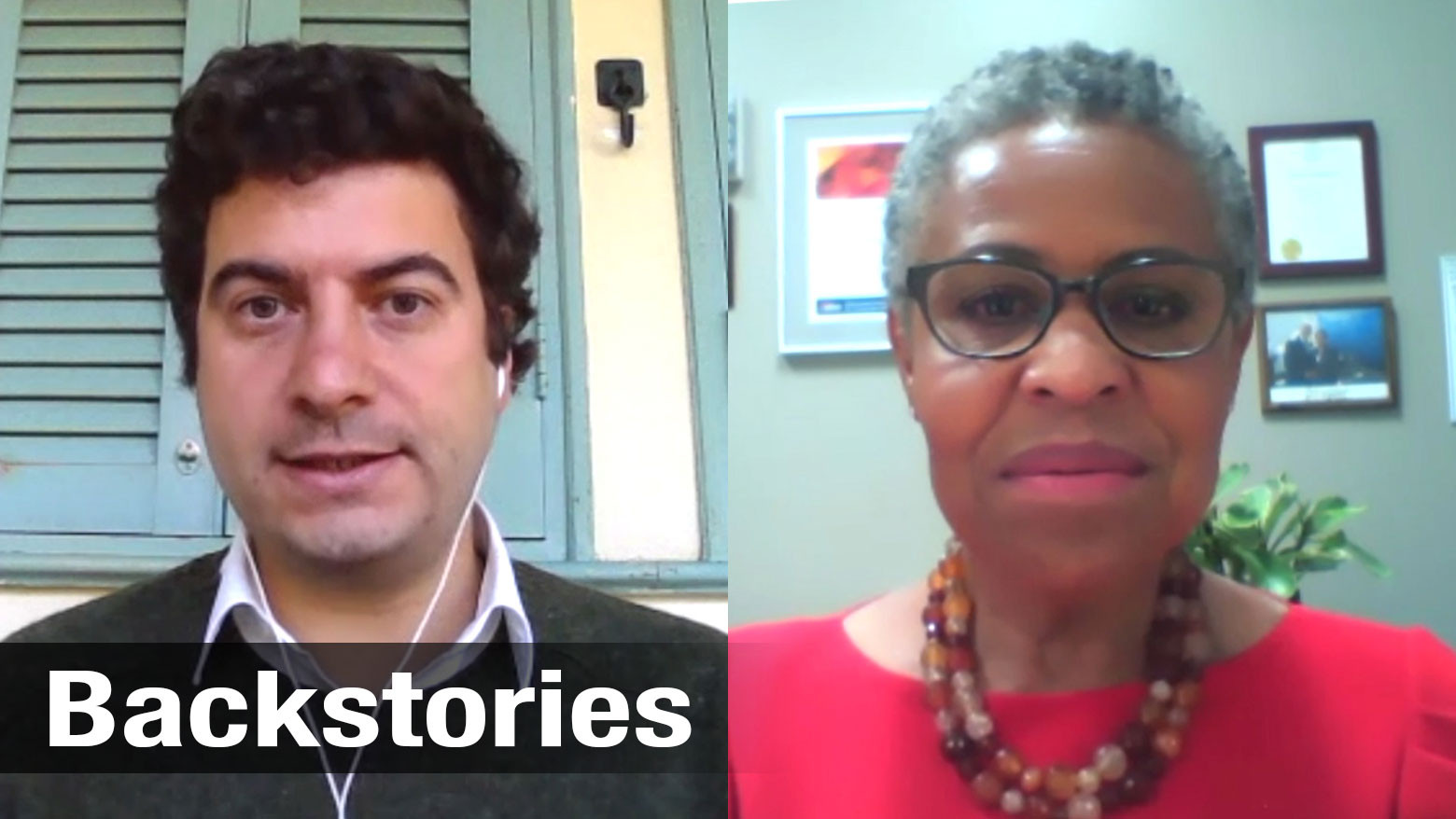Ebara Miki: Recent data from the US Centers for Disease Control and Prevention indicate that non-Hispanic Black people face a mortality rate that is approximately five times that of non-Hispanic white people from COVID-19. What factors contribute to this disparity?
Dr. Jewel Mullen: We continue to see devastation among racial and ethnic minority groups, essential workers and other vulnerable populations. I'd like to remind us that we cannot blame race or ethnicity on a difference. The differences and the disparities are a result of the lack of opportunity that people are subjected to because of their race and ethnicity. Many people talk about the risk associated with underlying conditions such as high blood pressure, diabetes, obesity, chronic lung disease, all of which can be associated with lack of opportunities for good healthcare, for healthy living conditions, for housing that is safe and secure, for access to care that is unbiased. These are all factors that we are looking at as responsible. At the same time, we know that the most vulnerable people are those who have to keep working. They cannot take advantage of the good public health measures that we are recommending everyone adopt.
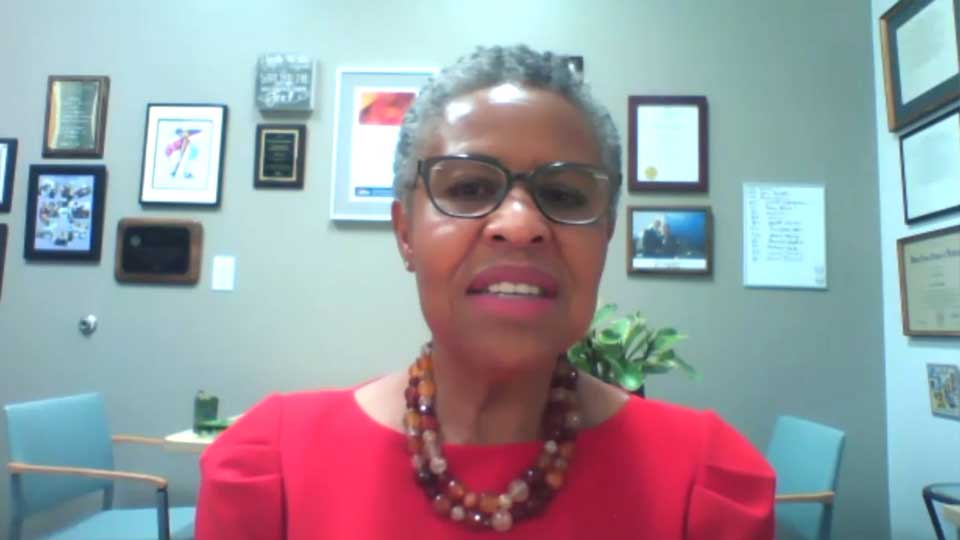
Ebara: What makes it so difficult to get people access to healthcare?
Mullen: I have had so many opportunities to observe how social inequality is manifested through health outcomes, and this pandemic has shown us in the US how this is happening once again. We struggle to get people access to care because even where I am, in Texas, 20% of the population does not have health insurance. You can't go to the doctor when you're sick. Many low wage workers also are not paid if they're sick and don't go to work. There's no paid sick leave. Those situations make it especially hard for people to protect themselves. Therefore, the lack of self-protection along with the lack of access to care sets people up for just what we're seeing.
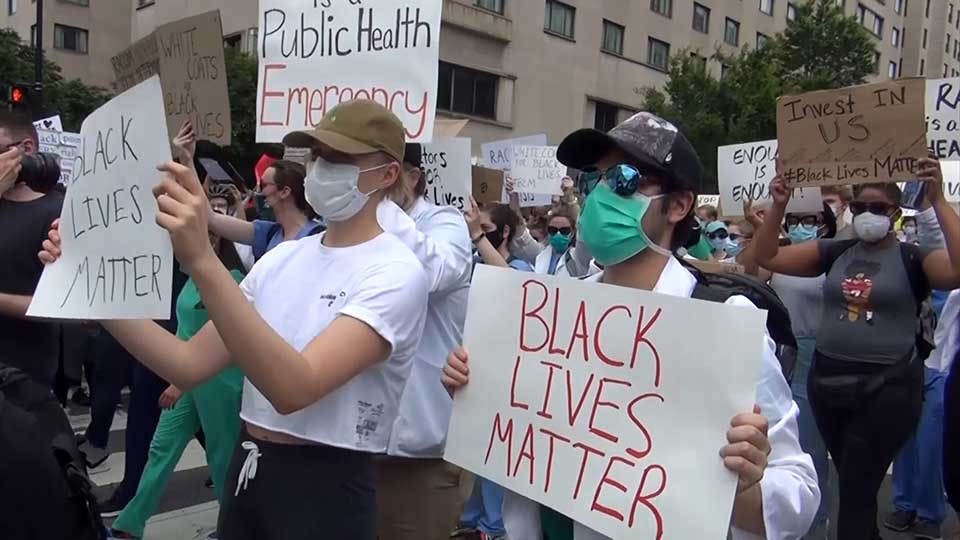
Ebara: You have said that "addressing health disparities requires understanding how slavery has left a legacy of racial power imbalance." That's something the Black Lives Matter movement is protesting against, right, the enduring social effects of slavery?
Mullen: Yes. As we look at the current protests here in the US, and as we look at them across the world, we notice that the Black Lives Matter movement is a multicultural movement because it's a movement for fairness, for justice. It's a standing-up for social equality instead of inequality. Yet, the legacy of slavery persists because the racist practices that people adopt when they decide that a population is inferior and can be discriminated against has impact that goes for generations. That impact is manifest by unequal opportunities for education, for economic advancement, for housing, for credit, for access to care. Therefore, we're seeing what we're seeing now because of the most glaring example of that unequal and unjust treatment which is the violence and killings that are being protested, murders of black men and women.
Brazil has recorded more than 2.7 million coronavirus cases and 93,000 deaths. Its densely populated, low-income communities, known as favelas, have suffered an especially heavy toll. According to data from São Paulo's health department, residents in such areas are 10 times more likely to die from the virus than residents of wealthy areas.

Ebara: How do you evaluate the Brazilian government's response to the pandemic?
Miguel Lago: The response has been very unprofessional. The government is not serious about this health crisis. The pandemic is affecting the poor people, the non-white communities, but the federal government is not using its state capacity to fight the health crisis.
Brazil is one of the most unequal countries in the world. One-third of the population belong to lower income groups. For the past thirty years, Brazil has developed its capacity to fight poverty to reduce structural inequalities. Now we have one of the largest public health systems in the world. All Brazilian citizens have a universal right to health. The country has also developed very wide social policies, including helping its citizens with basic income. But the current government is so incompetent that it can't fully utilize the capacity when people need it the most.
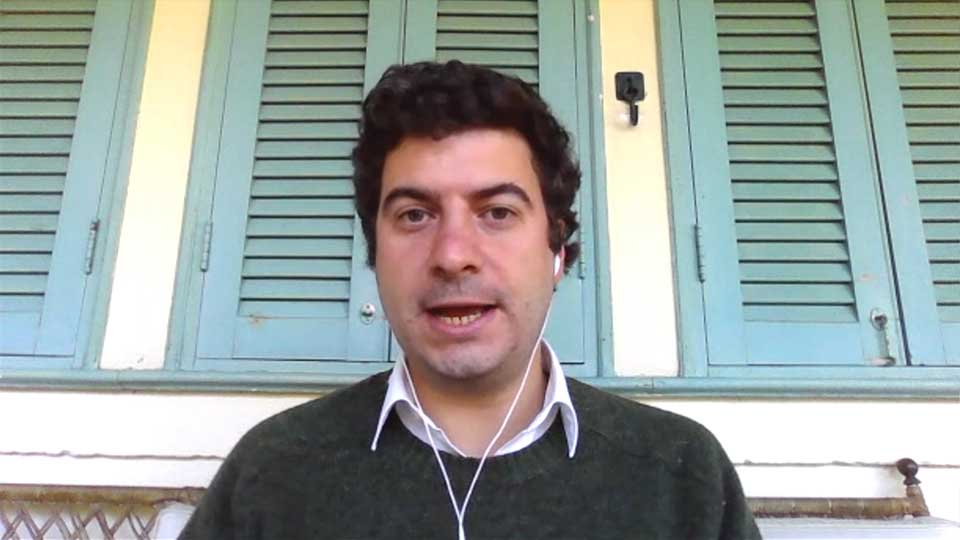
Ebara: Unlike other countries in South America, Brazil chose not to impose a nationwide lockdown. Why was that?
Lago: Politics. Argentina, our neighbor, for instance, has a much more fragile health system than ours. But it has implemented a lockdown and they're doing much better to control the viral infection.
Ebara: So is economy a bigger priority for Brazil than public health?
Lago: Leaders say that they care about our economy. But if they really cared about it, they must first tackle the health crisis. Many economists in Brazil emphasize that it's not the quarantine or lockdowns that are causing the economic crisis, it's the virus. So we need to contain the virus and then economy will recover little by little. But it's the supposition that President Bolsonaro created between economics and health. It's simply a way for him to not take responsibility for the economic downturn that will unfortunately emerge because of the virus.
Earlier this month, World Health Organization Director-General Tedros Adhanom Ghebreyesus slammed leaders in some countries for sending mixed messages on the coronavirus, saying governments must be clear when relaying public health information. He added that without basic preventive measures, "it's going to get worse and worse and worse."
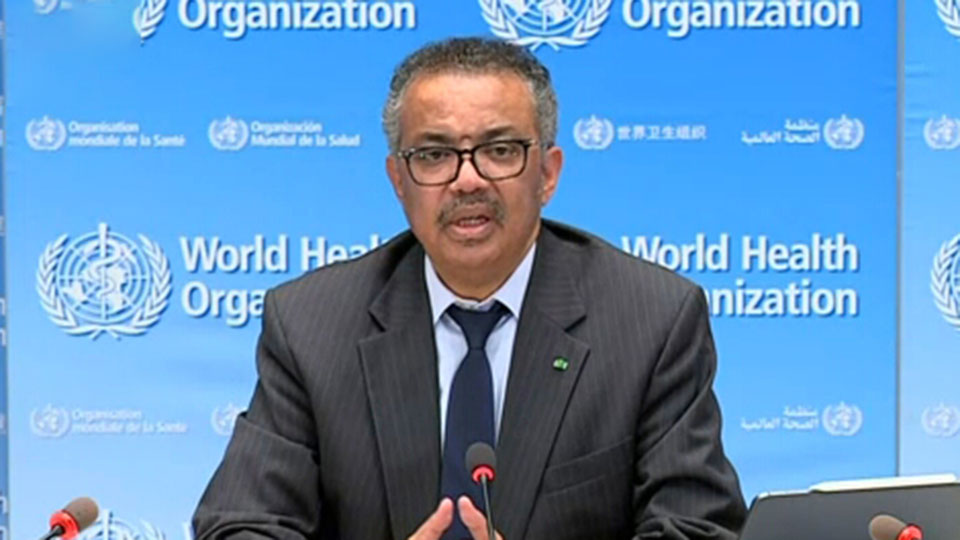
Ebara: I'd like to raise the issues of leadership and communication with the public, both of which are important in responding to the outbreak. Dr Mullen, what's your take on this?
Mullen: We can't expect the public to take our best advice if they can't have confidence in their leaders. When public health messaging starts to sound to some people like political talk instead of protective talk, leaders are responsible for keeping that from happening. Similar to Brazil, we also have a system of federal and state governments. Each of our fifty states can set its own policies, its own procedures and its own public communications. But that can cause confusion inside states and across the country. We need our leaders to commit to being coordinated in their policies and in their actions. Far from that, I don't think we're helping anyone. We're not helping ourselves get out of this because of that lack of leadership. It's essential.
Lago: The leadership is absolutely essential. I think Brazil is a great case to show that even though we have the state capacity and strong scientific communities, if you don't have good leadership and you don't take quick decision-making, this leads to disastrous effects. That's what Brazil is portraying to the world. Brazil is a federal country where the state governments have autonomy and they are the main ones responsible for the local public health systems. Some governors have taken more strict decisions, in other states that are not taking it seriously, we are seeing a total collapse of the healthcare system. But when the president does not support any kind of social distancing policies, and do not give any support to the states, it makes it hard for the local governments to implement any measures.
